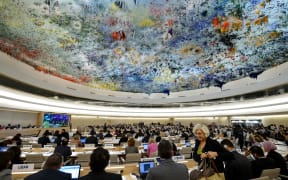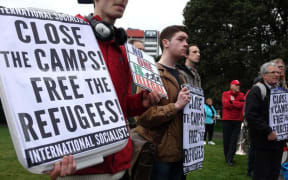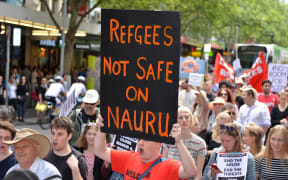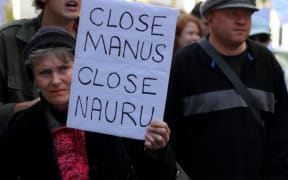The United Nations has delivered a blistering indictment of Nauru and Australia's failure to help children in detention-like conditions, especially those driven to attempt suicide and self-harm.
It slammed the Nauru's "limited capacity" to investigate allegations of sexual assault of children and its failure to follow up complaints while also severely criticising the harsh living conditions inside Australian's regional processing centres.
The Age newspaper reports among the UN's concerns were a lack of clean drinking water, poor sanitation, the absence of a dedicated paediatrician and the reported use of illegal corporal punishment against children at the camps.
The UN's Committee on the Rights of the Child also found that Nauru has made no progress towards honouring a promise made last year to establish a human rights watchdog.
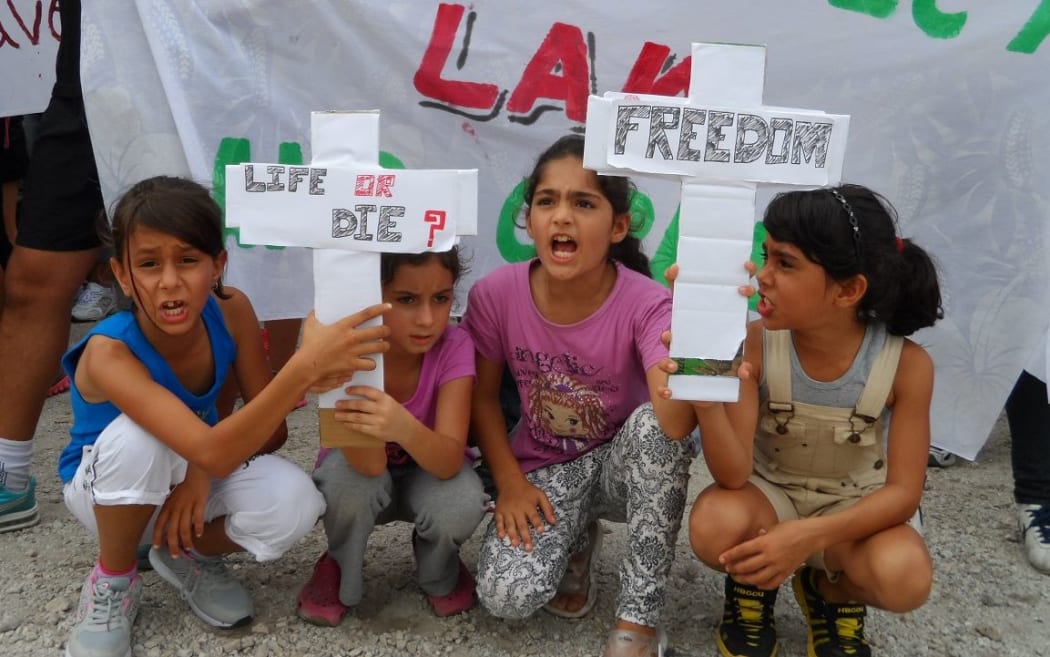
Children on Nauru protest their detention Photo: supplied
The report identified "inhuman and degrading treatment, including physical, psychological and sexual abuse, against asylum seeking and refugee children".
The UN concluded that mental ill-health, including "feelings of hopeless and often suicidal ideation", was exacerbated by prolonged uncertainty and poor living conditions inside the hot, humid camps.
There were 410 people in detention on Nauru at the end of August, according to the Department of Immigration and Border Protection.
The CRC issued its report based on hearings in Geneva, meetings with civil society groups, Nauru's own submissions and a review of previously published literature.
The committee urged Nauru - and by extension, Australia - to immediately remove asylum-seeking children and their families from the RPCs, and find "permanent, sustainable resettlement options" for recognised refugees, including reasonable access to employment.
It also called on Nauru to ensure that staff working at the RPCs were adequately trained in the identification of vulnerable children and those at risk of self-harm, and to develop a system to ensure incidents of self-harm were referred to the appropriate powers and followed up.
